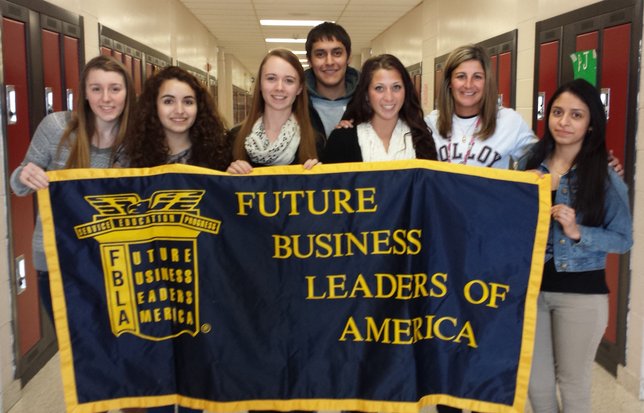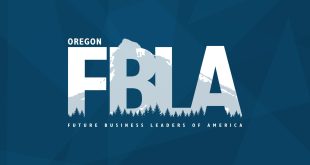How Has FBLA’s Mission Evolved Over Time? The Future Business Leaders of America (FBLA) mission has evolved significantly since its founding in 1940 to reflect the changing landscape of business, technology, and education.
Initially, FBLA was established to prepare students for careers in business and leadership by promoting practical skills and professionalism. Over the decades, its mission has expanded and adapted to address the evolving needs of students and the global economy. Let’s delve into the post and explore how has FBLA’s mission evolved over time.

What Is FBLA?
The Future Business Leaders of America (FBLA) is the largest student business organization in the world, empowering middle school, high school, and college students to succeed in the world of business and leadership. Since its inception, FBLA has remained committed to preparing the next generation of business leaders.
Overview of FBLA’s Original Mission:
FBLA was established with a clear mission: to prepare students for careers in business by teaching fundamental skills like communication, organization, and leadership. However, as business and technology have advanced, FBLA’s mission has evolved to meet the demands of a dynamic, global economy.
The Founding Era (1940s–1950s):
The Birth of FBLA
FBLA was founded in 1940 by Dr. Hamden L. Forkner of Columbia University. He envisioned an organization that bridged the gap between academic education and real-world business skills.
Early Goals and Objectives
The initial goals of FBLA were simple yet impactful: to provide students with practical skills like typing, accounting, and office management that could immediately translate into job opportunities.
Core Focus on Traditional Business Skills
During this era, the focus was heavily on training students for traditional business roles. Programs emphasized technical proficiency and professionalism, setting a strong foundation for the organization’s growth.
1960s–1980s: Leadership Expansion:
Shifting from Technical Skills to Leadership
In response to the evolving needs of the workforce, FBLA began to place greater emphasis on leadership development. Students were encouraged to cultivate qualities like problem-solving, teamwork, and decision-making.
Incorporation of Soft Skills Training
Recognizing the importance of soft skills, FBLA introduced workshops and training programs focused on communication, public speaking, and interpersonal skills.
Competitions and Real-world Applications
Competitive events were introduced to provide students with hands-on experiences. These events covered a range of topics, from entrepreneurship to public speaking, allowing students to apply their skills in real-world scenarios.
1990s: The Rise of Technology:
Technology’s Impact on Education
The 1990s brought rapid technological advancements, prompting FBLA to integrate technology into its programs. This ensured members were equipped with the skills needed for a digital workplace.
Introduction of Tech-Centric Competitions
Events like website development, computer applications, and network design became staples in FBLA competitions, reflecting the growing importance of IT skills in business.
Adapting Business Education for a Digital Age
FBLA also began to emphasize digital literacy and innovation, preparing students to navigate the challenges of a rapidly changing technological landscape.
2000s: Preparing Global Leaders
Globalization and the FBLA Mission
As globalization reshaped industries, FBLA adapted its mission to prepare students for careers in a connected world. Programs emphasized cultural awareness, global markets, and international business strategies.
Promoting Entrepreneurship
Entrepreneurship became a key focus during this time. FBLA encouraged members to think creatively and develop their own business ideas, fostering a spirit of innovation.
Enhancing Diversity and Inclusion
FBLA worked to create a more inclusive environment, ensuring students from all backgrounds had access to opportunities in business and leadership.
2020s and Beyond:
FBLA’s Role in Shaping Future Innovators
Today, FBLA is more committed than ever to empowering students to become leaders and innovators. Its mission now includes fostering creativity, critical thinking, and adaptability.
Sustainability and Business Ethics
Programs now highlight the importance of ethical business practices and sustainability, reflecting the values of modern businesses.
Digital Transformation and Remote Learning
FBLA has embraced digital tools and remote learning to make its programs accessible to students worldwide, ensuring its mission remains relevant in a digital-first world.
Major Milestones in FBLA History
Key Events That Defined FBLA’s Evolution
From the first FBLA chapter in Johnson City, Tennessee, to becoming a global organization, FBLA has achieved numerous milestones that have shaped its mission and impact.
Contributions to Business Education
FBLA has played a significant role in advancing business education, providing countless students with the skills and confidence needed to succeed in their careers.
FAQs
How Does FBLA Support Career Growth?
FBLA offers a wide range of programs, from leadership training to networking events, that help students develop the skills necessary for career advancement.
What Are the Benefits of Joining FBLA?
Members gain access to valuable resources, including mentorship, competitions, and scholarship opportunities.
How Has FBLA Helped Businesses Nationwide?
By preparing skilled and confident professionals, FBLA has positively impacted businesses across the country.
What Programs Does FBLA Offer Today?
FBLA offers programs in leadership, technology, entrepreneurship, and more, ensuring students are well-rounded and prepared for the workforce.
Can FBLA Help with Entrepreneurship?
Yes, FBLA provides resources and competitions designed to foster entrepreneurial thinking and innovation.
How Has FBLA Adapted to the Digital Age?
FBLA has integrated technology into its programs, offering digital resources, virtual events, and tech-focused competitions.
Conclusion
FBLA’s mission has continually evolved to reflect the changing needs of students and the global business environment. From its humble beginnings to becoming a leader in business education, FBLA has remained committed to empowering the next generation of leaders. As we look to the future, FBLA’s innovative programs and inclusive mission ensure it will continue to shape the leaders of tomorrow.



